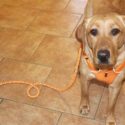Dog training is largely unregulated around the world. There are dog training qualifications that can be obtained in some areas, and some trainers are members of professional bodies that set standards and require members to agree to them. However, there is very little in the way of legal requirements for dog trainers to be either …
Experience Vs Credentials: What Matters Most When Choosing A Dog TrainerRead More










